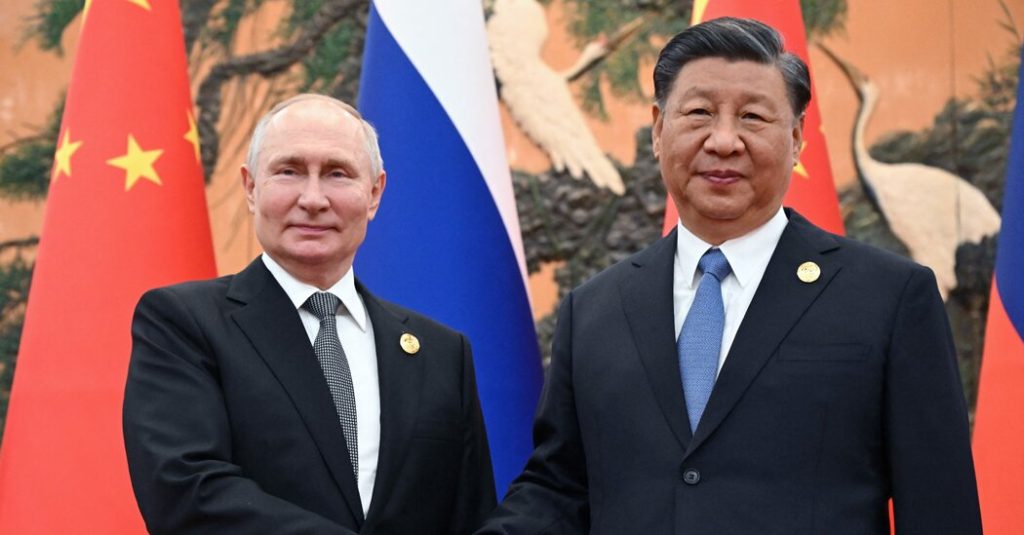When China’s top leader, Xi Jinping, hosts President Vladimir V. Putin of Russia this week, their meeting highlights a united front with different agendas. Mr. Putin aims to escalate his war in Ukraine before Ukrainian forces receive arms from the United States, while looking to ensure China remains a reliable partner. In contrast, Mr. Xi seeks to support his strategic partner Putin, while navigating pressure to avoid further alienating the West over his ties with Russia. Mr. Putin’s visit to Beijing includes discussions on seeking more help from China, which has been a crucial lifeline for Russia amidst Western sanctions imposed for its invasion of Ukraine.
Mr. Xi views Russia as a vital counterbalance to the United States in China’s global rivalry, but risks straining relations with Europe, a key trading partner, during a time when China relies on exports to boost its economy. The personal relationship between Mr. Putin and Mr. Xi is significant, with over 40 meetings between the two leaders and a symbolic exchange of birthday wishes. They see each other as like-minded leaders who blame the US for hindering their nations’ progress and have promoted a vision of a new world order free from American interference. The leaders will likely project strength and unity during their summit to showcase an alternative to the US-led system.
China has promised not to provide lethal weapons to Russia, but is reportedly aiding Russia with satellite intelligence, fighter jet parts, and equipment with both civilian and military applications. Mr. Putin is expected to seek continued support from China to bolster his military’s advances and intensify the war effort in Ukraine. Furthermore, Mr. Putin will likely aim to secure more trade and business deals with China during his visit, including discussions on the Power of Siberia 2 gas pipeline project. However, China’s interest in the pipeline is uncertain as it could involve passing through a third country and may expose China to secondary sanctions.
Mr. Xi has pursued a strategic balancing act by aligning with Russia and maintaining ties with the West to support China’s economic recovery. China has positioned itself as neutral in the Ukraine conflict and advocates for peace, putting forward a 12-point plan for a political resolution and sending an envoy to conduct diplomacy in Europe. However, Western countries have criticized China’s efforts for not requiring Russian troops to withdraw from Ukraine. China also shares Russia’s view on NATO expansion contributing to tensions that led to the invasion of Ukraine, further straining relations with the West.
China’s refusal to condemn Russia’s actions in Ukraine has led to worsening relations with the West and Europe’s alignment with the US on security matters. This has made China’s efforts to avoid a trade war with the EU over issues like electric vehicle exports and market access for European companies more challenging. Tensions with the US have also escalated, with the Biden administration announcing increased tariffs on various Chinese imports, including electric vehicles, solar cells, semiconductors, and advanced batteries. Mr. Xi’s strategy of balancing relations with Russia and the West is becoming increasingly difficult as global tensions rise.


